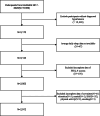U-shaped association between average daily sleep duration and depression among individuals with hypertension: a cross-sectional study based on NHANES 2017-2020
- PMID: 40597928
- PMCID: PMC12211263
- DOI: 10.1186/s12888-025-07075-w
U-shaped association between average daily sleep duration and depression among individuals with hypertension: a cross-sectional study based on NHANES 2017-2020
Abstract
Background: Depression is increasingly prevalent among individuals with hypertension, contributing to the worldwide disease burden. The link between sleep and depression, while extensively studied in the general population, remains underexplored in hypertensive individuals.
Methods: We assessed 2,912 hypertensive participants in the National Health and Nutrition Examination Surveys (NHANES) dataset (2017-2020). Average daily sleep duration was categorized < 7 h, 7-9 h, and ≥ 9 h. Depression was identified via the 9-item Patient Health Questionnaire (PHQ-9), with a cutoff score of ≥ 10.Logistic regression, curve-fitting analyses and threshold effects analyses were employed to evaluate the association between average daily sleep duration and depression after adjusting for confounding factors.
Results: Compared to the reference group with average daily sleep duration of 7-9 h, both short (< 7 h) and long (≥ 9 h) sleep durations were significantly linked to depression. In the fully adjusted model, short sleepers had an OR of 1.99 (95% CI: 1.69-2.35, p < 0.0001) and long sleepers had an OR of 1.74 (95% CI: 1.12-2.71, p = 0.0404). Smooth curve fitting analysis revealed a U-shaped relationship with an inflection point at 7.29 h. Below this point, increased average daily sleep duration reduced depression risk (OR = 0.62, 95% CI: 0.54-0.69, p < 0.0001), while above it, prolonged sleep increased risk (OR = 1.30, 95% CI: 1.16-1.45, p < 0.0001).
Conclusions: Among individuals with hypertension, average daily sleep duration exhibits a U-shaped association with depression. Both insufficient and excessive average daily sleep durations are associated with a higher risk of depression. Future research should incorporate longitudinal designs to establish temporal relationships and potential causality. Future research should also include actigraphy or polysomnography for at least a subset of participants to further validate the relationship.
Clinical trial number: Not applicable.
Keywords: Average daily sleep duration2; Depression1; Hypertension3; NHANES4; U-shaped association5.
© 2025. The Author(s).
Conflict of interest statement
Declarations. Ethics approval and consent to participate: This study adhered to the ethical principles of the World Medical Association Declaration of Helsinki. All study participants provided informed consent and the study protocol was approved by the Ethics Review Board of the National Center for Health Statistics (NCHS). Information can be found on the NHANES website ( https://www.cdc.gov/nchs/nhanes/participant.htm ). Consent for publication: Not applicable. Competing interests: The authors declare no competing interests.
Figures
Similar articles
-
Association of weekend catch-up sleep ratio with depressive risk: insights from NHANES 2021-2023.BMC Psychiatry. 2025 Jul 1;25(1):641. doi: 10.1186/s12888-025-07083-w. BMC Psychiatry. 2025. PMID: 40596991 Free PMC article.
-
NHANES 2005-2018 data reveal high albumin-bilirubin scores are associated with depression.BMC Psychiatry. 2025 Jul 1;25(1):660. doi: 10.1186/s12888-025-07082-x. BMC Psychiatry. 2025. PMID: 40597971 Free PMC article.
-
The association between hearing loss and depression in the China health and retirement longitudinal study.Sci Rep. 2025 Jul 1;15(1):20537. doi: 10.1038/s41598-025-05749-9. Sci Rep. 2025. PMID: 40595946 Free PMC article.
-
Systemic pharmacological treatments for chronic plaque psoriasis: a network meta-analysis.Cochrane Database Syst Rev. 2017 Dec 22;12(12):CD011535. doi: 10.1002/14651858.CD011535.pub2. Cochrane Database Syst Rev. 2017. Update in: Cochrane Database Syst Rev. 2020 Jan 9;1:CD011535. doi: 10.1002/14651858.CD011535.pub3. PMID: 29271481 Free PMC article. Updated.
-
Computer and mobile technology interventions for self-management in chronic obstructive pulmonary disease.Cochrane Database Syst Rev. 2017 May 23;5(5):CD011425. doi: 10.1002/14651858.CD011425.pub2. Cochrane Database Syst Rev. 2017. PMID: 28535331 Free PMC article.
References
-
- Long J, Duan G, Tian W, Wang L, Su P, Zhang W, et al. Hypertension and risk of depression in the elderly: a meta-analysis of prospective cohort studies. J Hum Hypertens. 2015;29:478–82. - PubMed
-
- Ma C. The prevalence of depressive symptoms and associated factors in countryside-dwelling older Chinese patients with hypertension. J Clin Nurs. 2018;27:2933–41. - PubMed
MeSH terms
Grants and funding
LinkOut - more resources
Full Text Sources
Medical



